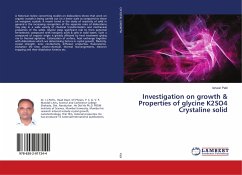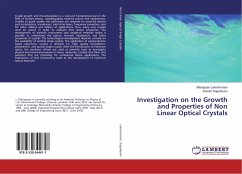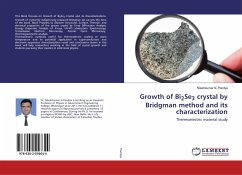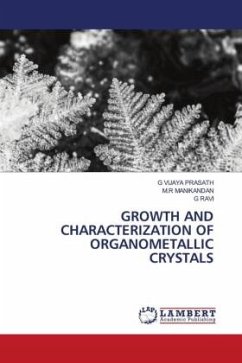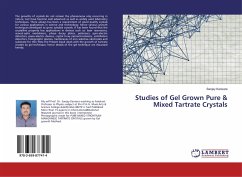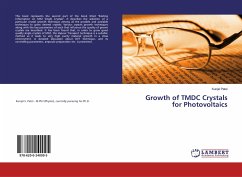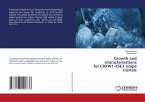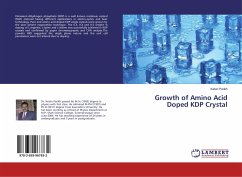A historical review concerning studies on dislocations shows that work on organic crystals is being carried out on a lower scale as compared to those on inorganic crystals. A recent trend in the study of reactivity of solid in general is the increasing recognition of the separate roles of dislocations may play in a wide variety of chemical transformation and mechanical properties of the solids. Glycine plays significant role to from potential ferroelectric compound with inorganic acids & salts in solid states. Such a compound of organic origin is greatly affected by heat treatment giving rise to thermal agitation. Colorization of surface, heat exchange together with dislocations which are determining factors in crystal growth, Plasticity, crystal strength, ionic conductivity, diffusion properties, fluorescence, excitation life time, photo-chemical, thermal rearrangements, electron trapping and their dissolution kinetics etc.
Bitte wählen Sie Ihr Anliegen aus.
Rechnungen
Retourenschein anfordern
Bestellstatus
Storno

